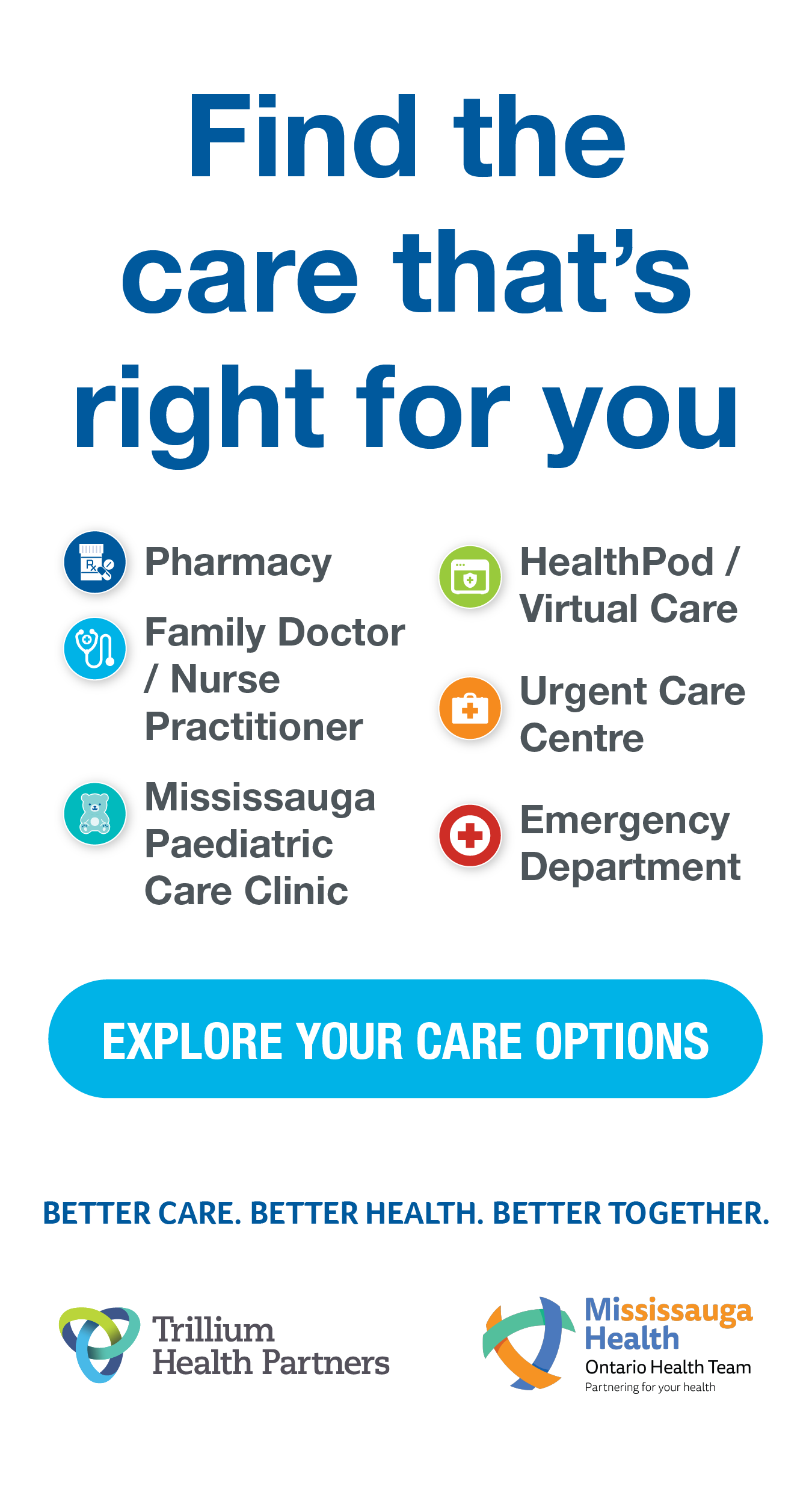BY SIMONE J. SMITH
It is becoming increasingly difficult to avoid the bleak, disturbing headlines that continue to pop up during our current COVID-19 crisis:
Coronavirus: Oxford vaccine triggers immune response
James Gallagher Health and science correspondent
July 20th, 2020
Coronavirus: Masks mandatory in France amid fresh outbreaks
BBC News, July 20th, 2020
FACT: There are no medicines that can prevent or treat COVID-19
World Health Organization
Indian government slammed for recommending homeopathy for coronavirus prevention
Thursday, January 30th, 2020
“There are no specific supplements that will help protect against coronavirus and anyone claiming that is being investigated by the FTC [Federal Trade Commission] and the FDA [Food and Drug Administration],”
Melissa Majumdar (Registered Dietitian and Spokesperson for the Academy of Nutrition and Dietetics)
Lisa Drayer CNN
March 25th, 2020
Oh Lord!
It is important to stay informed; in some ways, it is the only way that we can take back some control over our lives. Naturally, we our listening to the news, watching the updates, not realizing that it is causing stress, that does impact our bodies immune system.
We are having a tough enough time managing our lives during the pandemic, and this is why it is critical to choose our sources of information carefully. Yes, there is plenty of fact-based content on social media, and with how it is presented; it is also more likely to turn hearsay into misinformation.
As a journalist, who truly cares about her global community, I want you to remember one thing; not all information is created equal. The images that are pushed out to us don’t always have a lot of value.
When we see images of workers in hazmat suits, empty streets and armed guards, our brains detect a threat and will instantly go into fight, or flight mode, which over time can be extremely damaging to the body. When popular media report that rates of infections are “skyrocketing” it can trigger more anxious feelings than if they simply said, “increasing.” Don’t get it twisted for a second; these media companies know exactly what they are doing. I know it is difficult, but I want readers to see through the sensationalistic language and focus on the message they are delivering. According to the Mental Health Commission of Canada, if a particular news source uses a lot of alarmist language, you should consider avoiding that outlet altogether. Where possible, focus on the facts in the story, not the extraneous details or peripheral images.
“It’s interesting to me that I haven’t really heard anyone talking about boosting our immune systems during this pandemic.” Bruce Clark (Facebook User)
It is truly unfortunate, but what we have been offered as a society to best combat this virus are Band-Aid solutions. Some could go as far as to question the government’s decisions when it comes to managing this pandemic.
Let’s take for example, industries that were considered “essential services.” On July 15th, 2020, the Ontario government amended liquor laws to provide consumers with more delivery options and allow boat operators with liquor sales licences to temporarily sell and serve alcohol while their boat is docked.
Recognizing the continuing need to practice physical distancing, Ontario amended the Liquor Licence Act (LLA) to allow a licensed liquor delivery service to use contractors. This will give consumers more options for delivery services when purchasing alcohol from Ontario retailers, including the LCBO and The Beer Store.
I guess they are aware that people’s efforts to manage the demands of stressful experience sometimes lead them to engage in behaviours—such as alcohol use that also could modify immune system processes, and not for the better (Mental Health Commission of Canada).
According to the Liquor Control Board of Ontario, alcohol sales have increased significantly since late March, just around the time of the lockdown. Customers are actually admitting that they are buying more, because there isn’t as much to do.
According to a recent Nanos Poll commissioned by the Canadian Centre on Substance Use and Addiction (CCSA), it was found that since the pandemic began 25% of respondents between the age of 35 and 54 say they have started drinking more. Apparently, Ontarians are taking heed of health official’s advice to stock up when they shop in order to limit their time spent outside their homes. Not stock up on vitamins, not take more walks, not eat healthier, stock up on liquor because, well, it is an essential service after all.
“Those who do not find time for exercise will have to find time for illness.” Earl of Darby
Once again, the team at the Toronto Caribbean Newspaper have opted to take a different approach to educating our community, something that the government has been promising to do. So far, the only education that has been shoved in our faces is to wear a mask.
It is important that we provide our community with information that is going to not only help in the short term, but in the long term as well. WE are not telling you to not listen to government advice. This is a free country, so you are free to do so. What we are offering is ways in which we can build our bodies and strengthen our immune systems so that we can naturally prepare our bodies for the dreaded flu season. For that, I not only did some in-depth research on proven immune boosters, I also had the opportunity to speak with seasoned, and trained physicians who also think that it is important to build our natural defences.
I want to first introduce you to Dr. W. Gifford-Jones, and his daughter Diana Gifford-Jones. Dr. Jones’ medical career began when he attended Harvard Medical School in 1945. Even in his 90s, Dr. Gifford-Jones remains as poignant as ever. He has argued consistently for informed healthcare decision-making based on a fulsome understanding of the facts. He advocates relentlessly for compassionate care, championed by doctors with their patients, not by politicians. He urges us all to take responsibility for our lifestyle choices — most notably, striking a balanced diet, being active, and thinking twice before relying on synthetic drugs and surgical procedures when natural approaches may offer the best preventative medicine.
His daughter, Diana Gifford-Jones is a graduate of Wellesley
College and Harvard University’s John F. Kennedy School of Government. Diana has a wide range of global health and health education work experience with: international financial institutions, universities, government agencies, NGOs, and large and small businesses.
In one of their latest articles, they highlighted the fact that we need to ensure our natural defenses are at their strongest. It is a good strategy for everyday living during these COVID times. Their suggestions include loading up on vitamin C (1,000 milligrams (mg) taken three times a day), 3,000 international units of vitamin D, 400 mg of magnesium, 200 mg of zinc, and 100 micrograms of selenium. Let’s take a look at each of these in turn.
Vitamin C
Two-time Nobel Prize winner, Dr. Linus Pauling was the first to realize vitamin C’s crucial importance in the maintenance of a healthy immune system. Recent medical research has confirmed Dr. Pauling’s original idea that regular intake of vitamin C could help prevent and shorten the duration of a common cold. It is also very effective in preventing secondary viral or bacterial complications.
Vitamin C works by stimulating the immune system and protecting against damage by the free radicals released by the body (Vitamin C: Your Ultimate Health Insurance, Hans R. Larsen, Msc CHe). Doses should be divided throughout the day as urinary excretion increase rapidly when individual doses exceed 500 mg.
On March 3rd, 2020, the government of Shanghai, China announced its official recommendation that COVID-19 should be treated with high amounts of intravenous vitamin C (Orthomolecular Medicine News Service, Mar 3, 2020).
Richard Z. Cheng, MD, PhD, a Chinese-American specialist physician, has been working closely with medical and governmental authorities throughout China. Dr. Cheng was encouraging more Chinese hospitals to implement vitamin C therapy incorporating high oral doses as well as C by IV. Interesting, I didn’t hear this press release in the news.
Magnesium
There is over 100 years of magnesium research showing magnesium powerfully supports the immune system. Magnesium is easily lost under stress, which in turn weakens the immune system. Magnesium should be the go-to immune system support strategy, alongside vitamin C, when defending against microbial attack – particularly in the winter flu season. During the winter, we get more stress challenges when it is very cold, and this causes us to lose magnesium. It has also been found that elderly populations tend to have decreasing levels of magnesium, which correlate with the onset of disease.
So, how do we replace, and restore magnesium levels? According to Cleveland Clinic (https://my.clevelandclinic.org/), men need about 400 – 420 mg, and women need about 310 -320 mg. You can get rich sources of magnesium from greens, nuts, seeds, dry beans, and whole grains.
Zinc
Deficiencies in zinc represent a fairly prevalent human health problem, and also accompany many Western diseases and conditions such as gastrointestinal disorders, renal disease, sickle cell anemia, alcoholism, some types of cancers, AIDS, burns and others (Zinc and its role in immunity and inflammation, Paola Bonaventura, Giulia Benedetti , Francis Albarède , Pierre Miossec, 24 November 2014)
Zinc deficiency is said to affect all aspects of the immune system. This indicates that Zinc is essential for the proper development and function of the immune system. According to a World Health Organization report (WHO 2002), Zinc deficiency ranks fifth amongst the most important health risk factors in developing countries and eleventh worldwide.
Meat and shellfish are at the top of the list when finding ways to get more Zinc into your diet. Don’t fret my vegetarians: Legumes like chickpeas, lentils and beans all contain substantial amounts of Zinc. Peanuts, cashews and almonds can boost your intake of zinc, and whole grains like wheat, quinoa, rice and oats contain some zinc. For my chocolate lovers, dark chocolate contains reasonable amounts of zinc.
Selenium
Dietary selenium (Se) is an essential micronutrient that affects various aspects of human health, including optimal immune responses. In most cases, studies have demonstrated an enhancement of immune responses by increasing levels of Se intake.
What Selenium does is influence both the innate, “nonadaptive” and the acquired, “adaptive” immune systems (The influence of selenium on immune responses, Peter R. Hoffmann and Marla J. Berry, July 25th, 2013). The innate immune system includes barriers to infection.
In addition, there is a great deal of information regarding how Se-deficiency alters immune responses to a viral infection. When experimenting on mice, researchers compared Se-adequate mice, to Se-deficient mice infected with influenza virus. What they found was that Se-deficiency may result in elevated inflammation perhaps due to higher levels of oxidative stress.
Brazil nuts, fish, pastas, whole wheat breads, whole grain cereals, turkey, chicken, brown rice, sunflower seeds, mushrooms, oatmeal, lentils, banana’s and cashews are all rich in Selenium.
Vitamin D
The story of Dr. John Cannell is an interesting one. He is a California psychiatrist, who is the chief author of a landmark theory that postulates that influenza epidemics are intimately linked to declining vitamin D levels.
Dr. Cannell’s work with African-American patients has been examined routinely. He discovered that African skin pigmentation interferes with the sunlight-driven production of natural vitamin D. This fact, combined with the fact that they were being held isolated in a mental health facility, led Dr. Cannell to suspect that his patients’ blood levels of vitamin D would be abnormally low. He tested and affirmed this to be the case.
After educating his patients about vitamin D’s potential benefits, he prescribed routine supplementation with 2000 IU of vitamin D3 daily. Here is where readers need to start paying attention.
In the late winter of 2005, influenza broke out at the hospital. Just like we have seen on a global scale, ward after ward was quarantined, as patients were gripped with the chills, fever, cough, and severe body aches characteristic of the influenza A (sounds strangely like COVID-19).
One by one, the wards became infected, even though the patients were quarantined.
To Dr. Cannell’s growing amazement, his own patients remained unaffected. They had intermingled with patients from infected wards before the quarantines. He was certain that his patients had been exposed to the influenza virus.
His patients’ enduring health in the midst of a local epidemic profoundly influenced Dr. Cannell’s thoughts on the relationship between vitamin D and immunity to the flu.
An intriguing new theory suggests that diminished winter blood levels of vitamin D increase people’s susceptibility to influenza infection. Patients supplemented with vitamin D appeared to be completely protected against influenza infection, even while living in close proximity to people infected with flu. (FLU LE Magazine, Why is Flu Risk So Much Higher in the winter? February, 2007, Dale Kiefer)
“Prevention” is better than “Intervention”; “Self-care” is better than “Crisis Care”; “Meditation” is better than “Medications” Dr. George Grant
I wanted to end this article with an interview that I had with Dr. George Grant: Professor, M.Sc., Ph.D., Food Scientist, Biofeedback /Stress/ Nutrition/ Author/Editor. He is considered the Canadian authority of Biofeedback and Nutrition as well as the Canadian Wellness Ambassador.
Dr. Grant is an award-winning author of 13 bestselling books. He also holds 5 patents, has published over 250 health related research papers and has reviewed/edited over 375 papers and articles. Dr. Grant has been a guest speaker at many health-related conferences all around the world. With Dr. Grant’s assistance, Canadian and American athletes have been able to reach top 10 Olympic status. He has three Doctorates, three Master’s, and three Bachelors degrees. He is a Toxicologist, and Microbiologist, and was the former Scientist & Quarantine Officer with Health Canada, FDA & CDC for 10 years. Our discussion left me questioning a lot of things that I am hearing in the media.
“Media, and fear mongering,” Dr. Grant began, “suppresses the immune system.
There are three types of lymphocytes that mediate specific immunity: T-helper cells, T-cytotoxic cells, and B cells. The main function of T-helper cells is to produce cytokines that direct and amplify the rest of the immune response.
Early human studies report that chronic forms of stress are accompanied by reduced natural killer cell cytotoxicity, suppressed lymphocyte proliferative responses, and blunted humoral responses to immunization. Diminished immune responses of this nature are assumed to be responsible for the heightened incidence of infectious and neoplastic diseases found among chronically stressed individuals.
Contrary to popular believe Simone,” Dr. George continued, “masks cannot prevent any virus There is no scientist in the world can tell you that masks can protect you from a virus. There is something wrong here. SARS was more fatal than COVID-19, and MERs was even more dangerous. I am curious as to why our doctors are not talking about this. What they are telling you to do is stay inside. It has been researched and proven that indoor air quality is worse than outdoor.
This is not scientific. What Bill Gates is doing right now is not right for humanity. What are his medical credentials again? I can affirm that 80% of all diseases can be avoided if you watch your diet, and supplement yourself with Vitamin D3, Vitamin C (5000 Gr), and Zinc.”
Hmmm! It seems like there are doctors and researchers who seem to be saying the same thing. As media consumers, we bombard ourselves with COVID-19 details, headlines, and images, and this reinforces the threat signal and perpetuates the stress response. Remember, the information we allow in will affect how we feel – and we should monitor that intake with care. We fight infections everyday. Our bodies are built for this.
References
Cleveland Clinic
(https://my.clevelandclinic.org/)
FLU LE Magazine (Why is Flu Risk So Much Higher in the Winter?)
February, 2007
Dale Kiefer
Mental Health Commission of Canada
https://www.mentalhealthcommission.ca/English/news-article/13920/choosing-sources-information-carefully-critical-covid-19-mental-well-being-says
Orthomolecular Medicine News Service, Mar 3, 2020
http://www.orthomolecular.org/
(Psychological Stress and the Human Immune System: A Meta-Analytic Study of 30 Years of Inquiry, 2004)
https://www.ncbi.nlm.nih.gov/pmc/articles/PMC1361287/?source=post_page—————————
The influence of selenium on immune responses
Peter R. Hoffmann and Marla J. Berry
July 25th, 2013
Zinc and its role in immunity and inflammation
Paola Bonaventura , Giulia Benedetti , Francis Albarède , Pierre Miossec,
24 November 2014
Vitamin C: Your Ultimate Health Insurance
Hans R. Larsen, Msc CHe
http://www.yourhealthbase.com/vitamin_C.htm
Stay in the loop with exclusive news, stories, and insights—delivered straight to your inbox. No fluff, just real content that matters. Sign up today!
Dr. W. Gifford-Jones, MD is a graduate of the University of Toronto and the Harvard Medical School. He trained in general surgery at Strong Memorial Hospital, University of Rochester, Montreal General Hospital, McGill University and in Gynecology at Harvard. His storied medical career began as a general practitioner, ship’s surgeon, and hotel doctor. For more than 40 years, he specialized in gynecology, devoting his practice to the formative issues of women’s health. In 1975, he launched his weekly medical column that has been published by national and local Canadian and U.S. newspapers. Today, the readership remains over seven million. His advice contains a solid dose of common sense and he never sits on the fence with controversial issues. He is the author of nine books including, “The Healthy Barmaid”, his autobiography “You’re Going To Do What?”, “What I Learned as a Medical Journalist”, and “90+ How I Got There!” Many years ago, he was successful in a fight to legalize heroin to help ease the pain of terminal cancer patients. His foundation at that time donated $500,000 to establish the Gifford-Jones Professorship in Pain Control and Palliative Care at the University of Toronto Medical School. At 93 years of age he rappelled from the top of Toronto’s City Hall (30 stories) to raise funds for children with a life-threatening disease through the Make-a-Wish Foundation. Diana Gifford-Jones, the daughter of W. Gifford-Jones, MD, Diana has extensive global experience in health and healthcare policy. Diana is Special Advisor with The Aga Khan University, which operates 2 quaternary care hospitals and numerous secondary hospitals, medical centres, pharmacies, and laboratories in South Asia and Africa. She worked for ten years in the Human Development sectors at the World Bank, including health policy and economics, nutrition, and population health. For over a decade at The Conference Board of Canada, she managed four health-related executive networks, including the Roundtable on Socio-Economic Determinants of Health, the Centre for Chronic Disease Prevention and Management, the Canadian Centre for Environmental Health, and the Centre for Health System Design and Management. Her master’s degree in public policy at Harvard University’s Kennedy School of Government included coursework at Harvard Medical School. She is also a graduate of Wellesley College. She has extensive experience with Canadian universities, including at Carleton University, where she was the Executive Director of the Global Academy. She lived and worked in Japan for four years and speaks Japanese fluently. Diana has the designation as a certified Chartered Director from The Directors College, a joint venture of The Conference Board of Canada and McMaster University. She has recently published a book on the natural health philosophy of W. Gifford-Jones, called No Nonsense Health – Naturally!














Nigel Persaud
July 30, 2020 at 2:51 pm
Real information right here. We need to focus on this and not on vaccines. Especially after all of this new censorship on the new information on Hydroxychloroquine, the fact that they are censoring all the doctors coming forward becomes very scary and only proves there is more of a vaccine agenda versus finding a cost affective solution that can help people. People are dying for no reason and we need medias like Toronto Caribbean to bring us truths and not follow the narratives by parroting the same rhetoric.
Well done Toronto Caribbean!
Satishwar Narine
July 30, 2020 at 6:19 pm
Very good write up and good tips of immune build